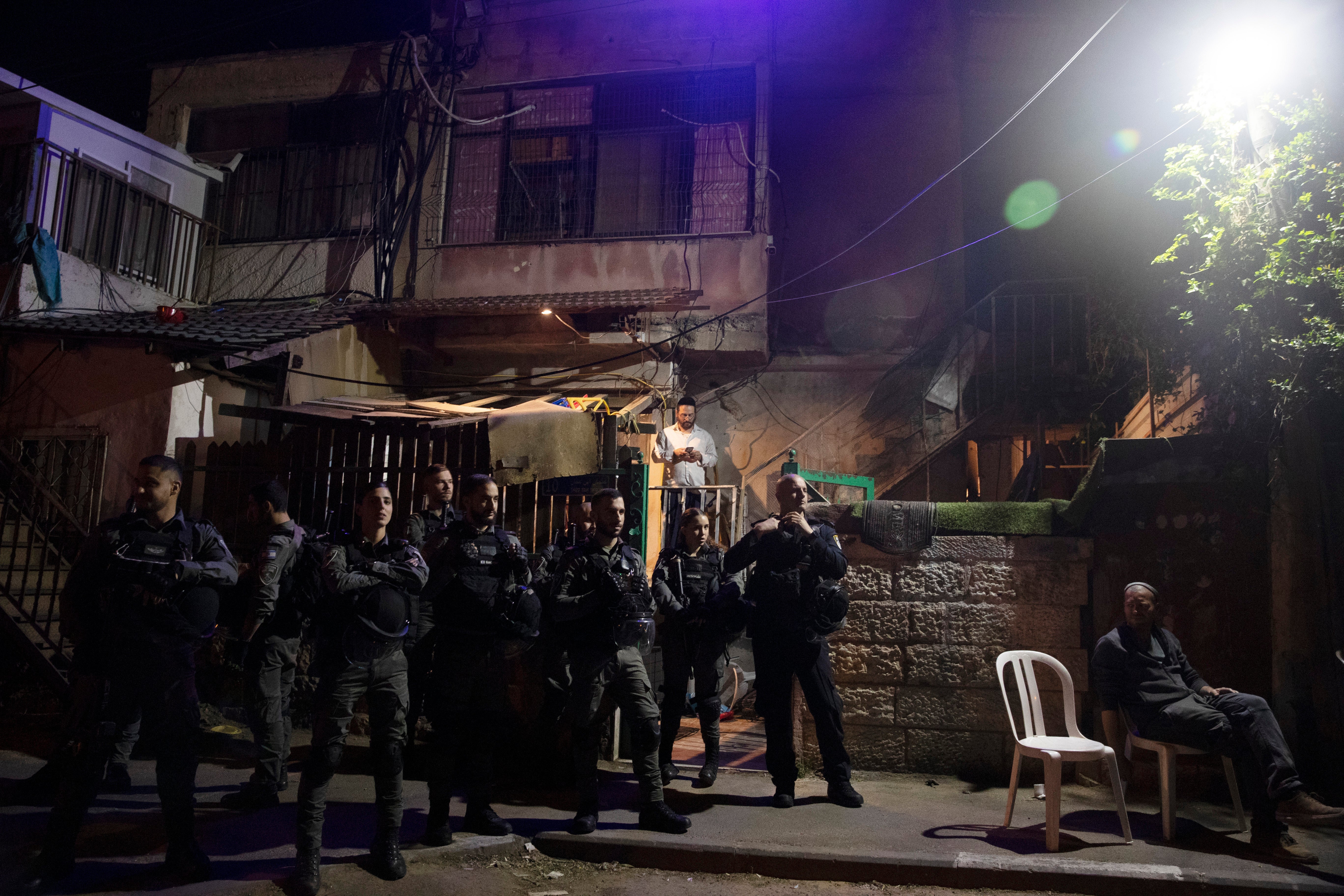In East Jerusalem’s Sheikh Jarrah we see the essence of the Palestinian struggle
Our message is clear: we are not going anywhere. We want to remain, to continue to build memories


Your support helps us to tell the story
From reproductive rights to climate change to Big Tech, The Independent is on the ground when the story is developing. Whether it's investigating the financials of Elon Musk's pro-Trump PAC or producing our latest documentary, 'The A Word', which shines a light on the American women fighting for reproductive rights, we know how important it is to parse out the facts from the messaging.
At such a critical moment in US history, we need reporters on the ground. Your donation allows us to keep sending journalists to speak to both sides of the story.
The Independent is trusted by Americans across the entire political spectrum. And unlike many other quality news outlets, we choose not to lock Americans out of our reporting and analysis with paywalls. We believe quality journalism should be available to everyone, paid for by those who can afford it.
Your support makes all the difference.The planned evictions of Palestinian families from Sheikh Jarrah have sparked a global outcry after residents of the neighbourhood, along with Palestinian activists, mobilised a social media campaign (#SaveSheikhJarrah) to raise awareness of the recent alarming developments there.
For a few, like myself, the unfolding events are deeply personal – my family is one of those facing expulsion.
I am the daughter and granddaughter of proud Jerusalemites. Their story is the story of millions of Palestinians – the story of a struggle to exist.
In the 1948 al-Nakba (what Palestinians call the “catastrophe”), my grandparents became refugees, forced to leave their beautiful home in the Baqa neighbourhood in what came to be known as West Jerusalem.
My grandparents found refuge in Sheikh Jarrah, an area just outside Jerusalem’s Old City.
They built a loving home, planted trees to nurture their rootedness in the land, and were part of a strong-knit community. As children, we felt safe there. We grew up as proud Jerusalemites living in the heart of the city. But we knew also that the threat of expulsion loomed.
For Palestinians, then, al-Nakba was not just an event; it is an ongoing condition of our existence. We face it every time the Israeli policies expel us from our homes, attack us in our places of worship, and restrict our access to cultural and political spaces in our city.
Al-Nakba is both collective and personal, a condition of existing despite the continuous uprooting we face every day. This is the sentiment and experience of hundreds of thousands of Jerusalemites, intimidated and coerced into living under a system that aims to erase them from their city.
This is not a new struggle – we have been battling with the settler organisation in Israeli courts for decades. We have no faith in these courts; after all, they are ultimately enforcing discriminatory legislation. They are not on our side; they don’t see us as equal human beings who just want to stay in our homes, who want justice and the right to live in our city.
In addition to that, Palestinian Jerusalemites face blatant discrimination due to housing permits, settlement expansion, lack of infrastructure, and a strangling economic situation reinforced by complete segregation from the rest of the West Bank. Families are divided, local institutions weakened and silenced, and life within the city has become unbearable and impossible.
Jerusalem, in the Palestinian Jerusalemite psyche, is not divided. We have been systematically excluded from returning to our homes there, making it a Jewish-only area. Meanwhile, East Jerusalem became a de facto Palestinian space, but Israeli aggression and expansionist policies are systematically pushing us out of there, too.
This is why Sheikh Jarrah is a critical and central struggle. It is the living space at the heart of Jerusalem, connecting the remaining Palestinian Jerusalemite neighbourhoods and hosting important cultural and political institutions.
The people of Sheikh Jarrah have stayed defiant and their steadfastness is humbling. We have all witnessed in the last few weeks their bravery, as Jerusalemites and Palestinians from all over Palestine have united.
In Jerusalem in particular, expressions of solidarity have been hit hard by Israeli forces, in parallel to other repressive measures taken around Damascus Gate during Ramadan.
As if that wasn’t enough, last Friday, more than 200 Palestinian worshippers inside al-Aqsa mosque compound were injured. On Monday, some 300 Palestinians were injured in the compound and the Old City.
The situation in Jerusalem is far from calm on other days. Intimidation, harassment, home demolitions, discrimination and segregation are the norm for Jerusalemite families. Our daily existence is a fight.
As Mohammad el-Kurd, a writer from Jerusalem and one of the residents threatened with expulsion, wrote: “If they steal Sheikh Jarrah”, our existence in the city and its Arab identity will remain no more.
We urge people to stand with Sheikh Jarrah. Your solidarity matters. Your activism matters. Our joint struggle for justice, freedom and dignity is a universal struggle and we need to keep fighting, resisting, writing, sharing, petitioning, and amplifying the voices of Palestinians.
Our message is clear: we are not going anywhere. We want to remain, to continue to build memories, to have our children grow and know their home and city like we did. This is our city. These are our homes. We refuse to be erased.
Dr Muna Dajani is a UK-based academic and policy member at Al-Shabaka, the Palestinian Policy Network
Join our commenting forum
Join thought-provoking conversations, follow other Independent readers and see their replies
Comments